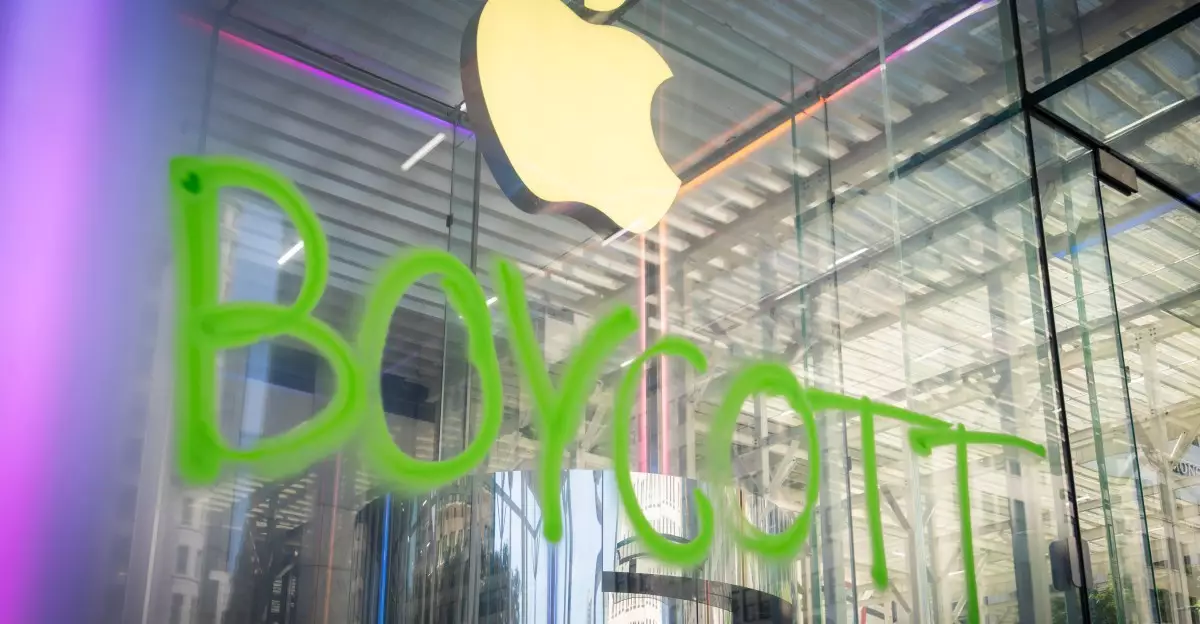In recent years, many large technology corporations have adopted environmentally friendly narratives, often showcasing their commitments to sustainability as a badge of honor. Yet, a closer look reveals a stark contradiction between their public declarations and their real-world practices. These companies, including giants like Apple, Google, and Microsoft, have become adept at touting their eco-friendly initiatives while quietly supporting activities that undermine genuine climate progress. This performative activism creates a facade that can deceive consumers into believing their favorite brands are leading the charge against environmental crises—yet, the truth often tells a different story. Their partnerships and financial backing for fossil fuels, lax environmental policies, and increasing energy demands for AI development expose the superficiality of their green promises.
The Hypocrisy of Political Alignments
A disturbing pattern emerges when examining the political stances of these tech behemoths. Despite publicly claiming allegiance to global accords like the Paris Agreement, many of their top executives have demonstrated support for administrations that actively weaken environmental protections. The protest action at Apple’s New York City storefront highlights this hypocrisy. The spray-painted message “Tim + Trump = Toxic” serves as a stark indictment of the disconnect between corporate rhetoric and political reality. It’s a reminder that affiliations with political figures—especially those who deny climate change or rollback environmental regulations—are incompatible with moral leadership. Corporate leaders like Tim Cook thus wield their influence more as a shield against accountability than as a catalyst for genuine change.
The Cost of Greenwash and Corporate Complicity
Behind the glossy advertisements and sustainability reports lies a troubling pattern of complicity and greenwash. When companies campaign for climate action but continue to support or fund environmental rollback policies, they undermine the very cause they publicly support. The protestors’ chants of “Dump Trump, Apple!” encapsulate this frustration, emphasizing that true commitment to climate justice requires more than superficial gestures. Supporting fossil fuel interests, turning a blind eye to climate injustice, and enabling oppressive policies like ICE raids show that these corporations prioritize profits over principles. Their relationships with political regimes hostile to environmental progress betray claims of environmental stewardship and threaten the long-term health of the planet.
The Rising Energy Toll of AI and Digital Expansion
While public discourse often focuses on fossil fuels and transportation emissions, the surge of artificial intelligence and digital infrastructure presents a new challenge: escalating energy consumption. Tech giants’ investments in AI are often portrayed as innovations for progress; however, the environmental cost of powering vast data centers and AI models is rarely acknowledged. Google’s own report noted an 11% increase in carbon emissions, showcasing the hidden environmental toll of digital growth. Microsoft and others are on a similar trajectory, risking derailing their climate commitments as they chase innovation at the expense of sustainability. This paradox underscores the urgent need to re-evaluate the true costs of technological advancement and to hold corporations accountable for balancing innovation with ecological responsibility.
The Need for Genuine Leadership and Accountability
It is clear that surface-level commitments and empty protests are insufficient to address the magnitude of the climate crisis. While activism, such as Extinction Rebellion’s bold actions, draws necessary attention to these issues, the real change must come from within corporate cultures. Leaders must move beyond performative statements to implement tangible policies that prioritize environmental integrity over short-term profits. This includes transparently phasing out fossil fuel investments, supporting renewable energy, and pushing back against political regimes that threaten climate progress. Ultimately, authentic change requires a shift in corporate ethos—an acknowledgment that true leadership involves standing at the forefront of climate action rather than hiding behind propaganda and complicity.
The ongoing climate crisis demands not only awareness but decisive, authentic action. The contradictions laid bare by protests and exposes reveal that much of what we see on the surface is mere window dressing. Consumers and activists alike must demand accountability and insist that corporations align their practices with their rhetoric. Only through such rigorous scrutiny and courageous leadership can meaningful progress be achieved in curbing the environmental decay threatening our planet.

